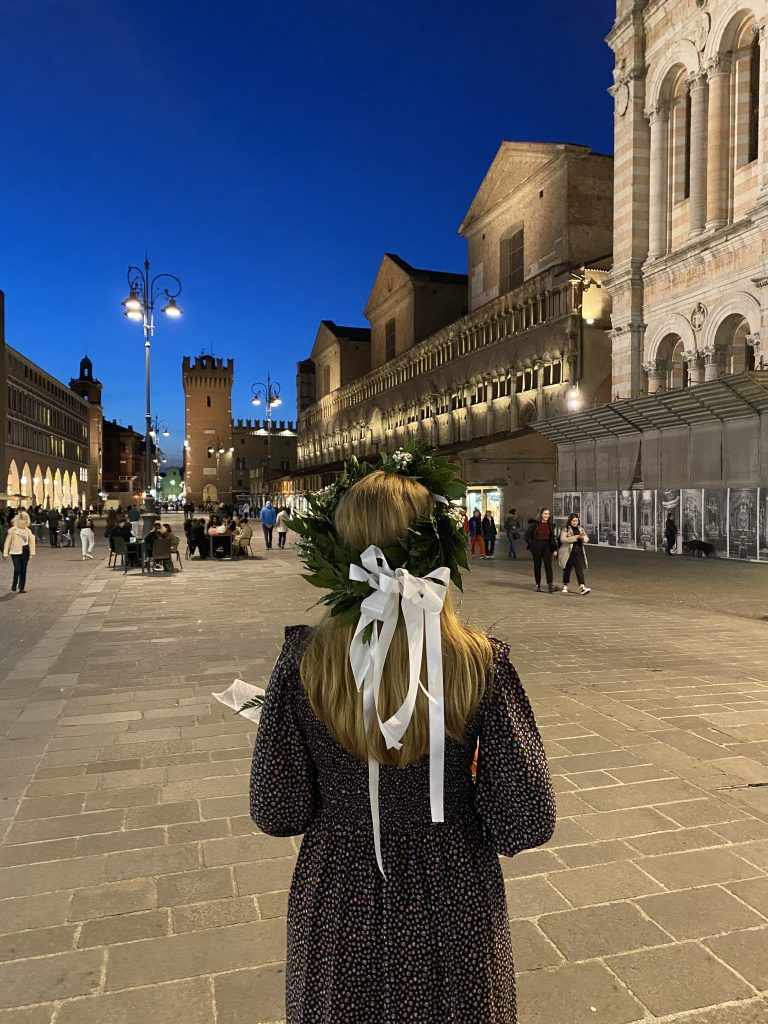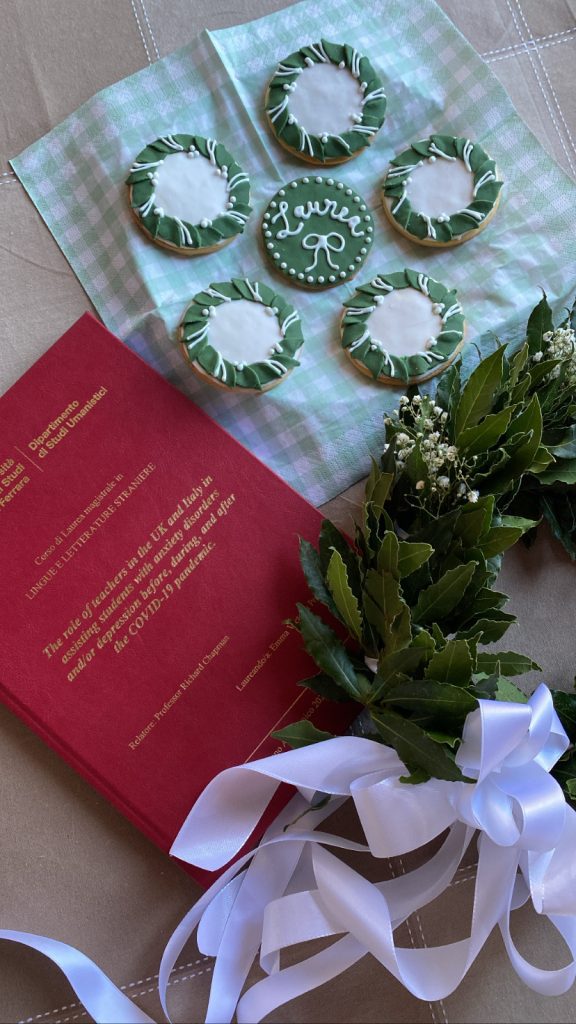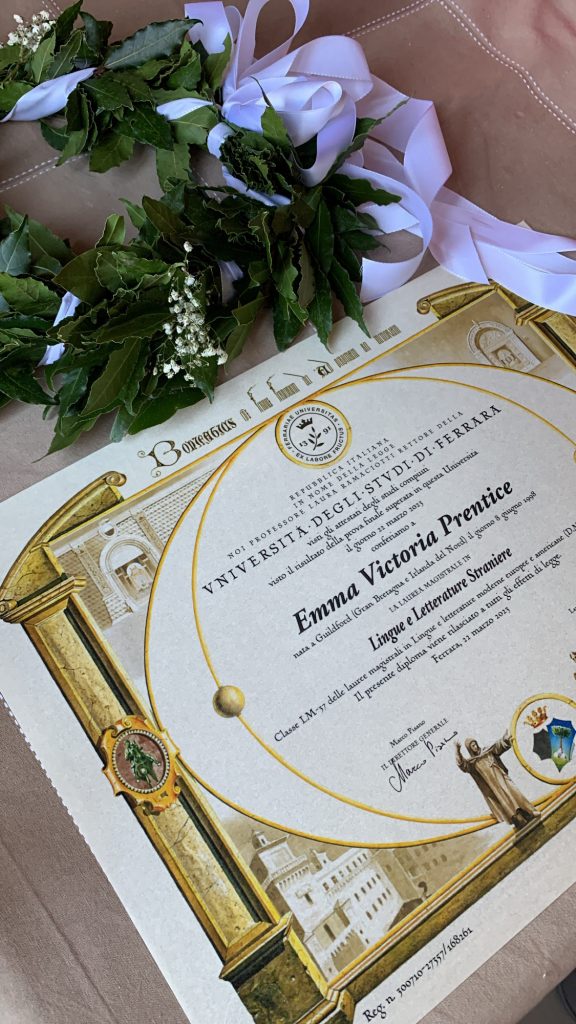After studying Italian and Spanish for my Bachelor’s degree in Leeds, England, I decided to enrol in a Master’s course at the University of Ferrara, Italy. My undergraduate experience had been more or less what I had expected; more independence, fewer classes than school, and lots of clubs and activities to be a part of. Maybe it was because I started studying in Italy right at the peak of the pandemic, but my Italian university experience was certainly beyond my expectations.
Long classes
The first thing to note about Italian university classes is that they are long – much longer than I had been used to. In the UK I attended fifty-minute lessons, but in Ferrara they were all two hours long. This tested my ability to concentrate for long periods of time, particularly given that many of these classes were in Spanish and Italian meaning I had to focus extra hard.
Timetabling
Another factor I noticed was that the professors seemed to arrange for their classes to be whenever they worked for them, not taking into account that another professor may have arranged their classes for the very same time. This made timetabling trickier than usual, and it also meant that some days were lesson-heavy, with up to ten hours of lectures back-to-back.
Italian university exams
Although the lessons themselves were different, it wasn’t until I got to the exams that I encountered the true Italian university experience. First of all, you could decide when you took your exams, choosing from the three or four exam sessions spread throughout the year. This meant that you could be as go-getting or as lazy as you wished – bearing in mind that your university taxes only cover a certain number of years, so if you left it too long you could be at risk of paying more.
“Open exams”
Exams in Italy were unlike any that I had experienced before. Firstly, they were “open”, meaning that anyone – other students or even members of the public – could come in and watch the exam taking place. Considering that the majority of exams are oral, this means having an audience as though you are putting on a show.
Due to the nature of oral exams being individual exams, you could potentially be waiting for hours on end before taking the stage to sit your exam. Some professors make a rough timetable for students to be guided by, others aren’t so generous. If there are too many students to sit an exam in one day, they carry over to the next day or the next time the professor is available to take the exam.
One exam I took, which should have been at 9am on Tuesday morning, ended up at 6:30pm on the Wednesday. In other words, almost two full days after it was scheduled. The difficulty with these exams is that some students who are also working have to take days off to be able to attend the exam. Most of the time professors are accommodating and are able to schedule them for an earlier slot, but there are no guarantees.
Another factor that is not guaranteed is the unbiased grading by the professors. In England each student has their own identification number for written exams, ensuring anonymity and no conscious or unconscious biased opinions by professors. Oral exams are recorded, and spot checks are done to ensure the marking is fair. In Italy, however, the professors’ decision is law. There is no point in arguing, as I witnessed first hand, because this will only give the professor a worse opinion of you when resitting the exam in the future.
Italian vs. English exam system
Exams in Italy are definitely not for the faint-hearted, especially if you’re used to a more relaxed exam system like that in England. That’s not to say exams in England are easy, but rather that the difficulties of the Italian exam system are simply that they test your confidence and embarrassment levels as well as your knowledge on the subject! That being said, Italian students are brought up being tested orally at school so are much better prepared for what – for me – was a giant leap.

When I started my Master’s, I was blissfully unaware of the challenges that I would be facing, so hopefully you’re now feeling more prepared if you’re thinking of going to an Italian university. Despite its challenges, it is definitely doable, and it will all be worth it when you get to wear your laurel crown on graduation day.





